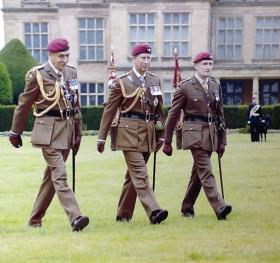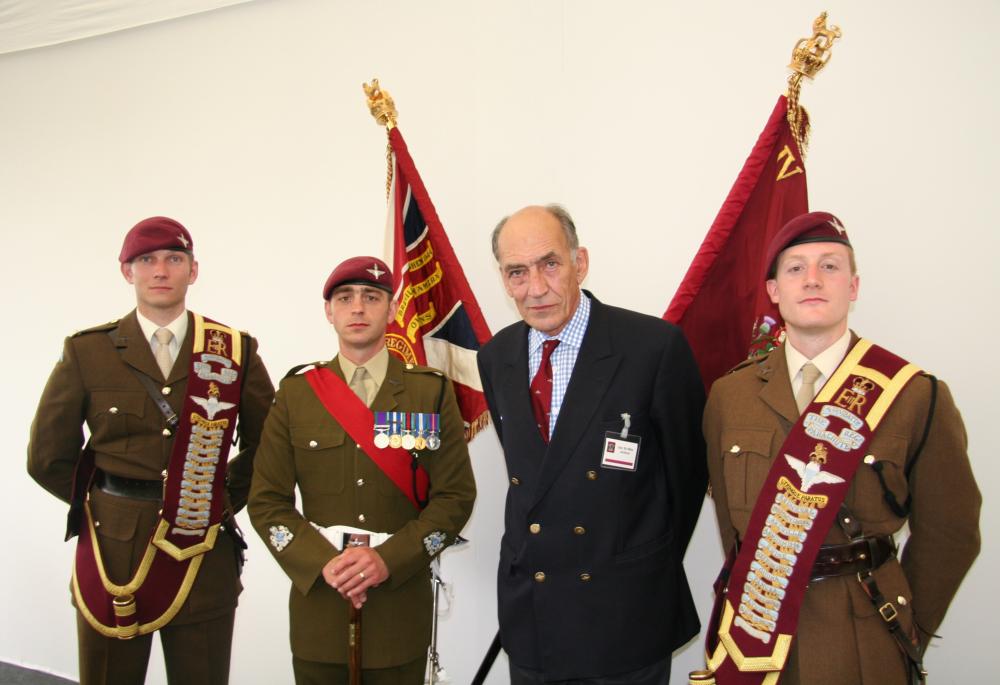
General Sir Mike Jackson former head of the British Army dies aged 80.
Mike Jackson was born in Sheffield, England, and grew up in a family with a strong military tradition. He attended Stamford School and later the Royal Military Academy Sandhurst, where he began his formal military training. Jackson also studied at the University of Birmingham, earning a degree in Russian Studies, which later proved valuable in his military career.
Jackson was commissioned into the Intelligence Corps in 1963 and later transferred to the Parachute Regiment, where he spent much of his career. He quickly rose through the ranks, demonstrating exceptional leadership skills and strategic acumen. Jackson served in various operational theaters, including Northern Ireland during the Troubles, the Balkans, and Iraq.
Most known for his role in Bloody Sunday, a dark chapter in the history of Northern Ireland, which occurred on January 30, 1972, in the Bogside area of Derry. On this fateful day, British soldiers shot 26 unarmed civilians during a peaceful protest march against internment without trial. Among those soldiers was then-Captain Mike Jackson, who later rose to the rank of General.
General Mike Jackson’s involvement in Bloody Sunday has been the subject of extensive scrutiny and debate. At the time, Jackson served as the adjutant of the 1st Battalion, Parachute Regiment, responsible for coordinating communications and logistics. His role on that day was not as a direct combatant but as a key figure in the operational command structure.
In the immediate aftermath of the shootings, Jackson compiled a list of the soldiers’ accounts of the events, which was later used as part of the initial military reports. These accounts formed the basis of the widely criticized Widgery Tribunal, which largely exonerated the soldiers and blamed the marchers, igniting further outrage and mistrust among the Irish nationalist community.
Years later, during the Saville Inquiry, which was established to re-examine Bloody Sunday, Jackson’s actions and statements came under renewed scrutiny. The Saville Inquiry, concluded in 2010, found that the killings were “unjustified and unjustifiable,” and that the soldiers had lost control, firing indiscriminately at unarmed civilians.
General Jackson, who had become one of the most senior and respected figures in the British Army by the time of the Saville Inquiry, acknowledged that mistakes were made but maintained that he had acted in good faith based on the information available to him at the time. His testimony, along with that of other military personnel, was crucial in painting a more comprehensive and honest picture of the tragic events.
The legacy of Bloody Sunday remains a poignant reminder of the complexities and tragedies of the Northern Ireland conflict. General Mike Jackson’s role, as both a participant and later a commentator on the events, illustrates the difficult position of military leaders in situations of civil unrest and the lasting impact of their decisions on history and justice
He became commander of the British forces in Kosovo in 1999. Jackson played a crucial part in the NATO intervention in Kosovo, helping to bring an end to the conflict and restore stability to the region. His diplomatic skills were also on display when he famously refused orders from NATO Commander General Wesley Clark to confront Russian forces at Pristina Airport, a decision that helped avoid a potentially dangerous escalation.
Promoted to Chief of the General Staff in 2003, Jackson became the professional head of the British Army. During his tenure, he oversaw significant changes in military strategy and operations, including the UK’s involvement in the Iraq War. Jackson was known for his candid communication style and his ability to inspire confidence among his troops and peers.
After retiring from active service in 2006, Jackson continued to contribute to military and public life. He has written extensively on military strategy and leadership, sharing his insights and experiences through books and lectures. Jackson also served as a consultant and advisor on defense and security matters.








